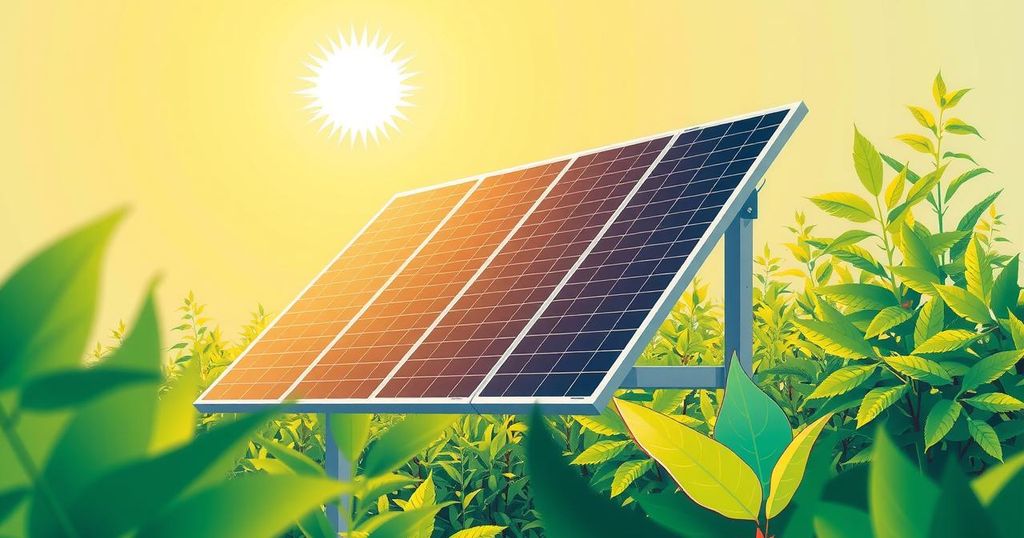The proposed ban on solar panel imports in Nigeria raises significant concerns among stakeholders, as solar energy is essential for daily life. While the government promotes local production, experts warn that the ban may lead to increased prices and limit access for low-income families, especially in rural areas dependent on solar energy. A balanced approach is necessary to ensure sustainable energy access for all.
Nigeria’s proposed ban on solar panel imports has sparked significant concern among stakeholders, particularly in a country that already struggles with limited electricity supply from the national grid. Chidi Okonkwo, a local businessman, compared the ban to “outlawing umbrellas during the heaviest rains,” emphasizing the essential nature of solar energy for daily life and business operations.
The Nigerian federal government, under Presidential Executive Order No. 5, seeks to prioritize local production in science and technology. Minister Uche Nnaji asserts that Nigeria possesses abundant lithium resources and aims to invest heavily in renewable energy infrastructure, arguing that these efforts will satisfy local solar energy demands.
However, energy experts warn that this approach may backfire, recalling past attempts to curb imports, such as the 2019 border closure targeting rice smuggling, which ultimately led to rising food prices. Aisha Mohammed, an energy analyst, indicated that the ban could further inflate already high prices of solar panels, making them inaccessible for many Nigerians and stifling business investment in solar energy solutions.
Industry representatives like Jide Pratts of Trade Grid express skepticism about the planned ban, stating that Nigeria has not successfully scaled local production to meet demand. He cautions that imports should not be halted until the local capacity can efficiently supply at least 70 percent of needs, suggesting that competition should be encouraged rather than restricted.
The current solar manufacturing sector in Nigeria is not sufficiently robust, with few assembly plants unable to meet the extensive demand. Chioma Nwachukwu, a project manager, added that locally produced solar panels tend to be more expensive than their imported counterparts, posing additional affordability challenges.
Research indicates that solar systems vary greatly in price, from N400,000 for basic setups to N20 million for extensive off-grid solutions. These systems cater to different energy needs, with high-end installations providing substantial backup power suitable for home and business use.
Experts project that if the import ban is enacted, solar energy prices could soar by 40-60 percent, potentially ushering users back to less clean energy sources. This concern is particularly acute in rural regions where solar systems often serve as the sole electricity source.
In conclusion, Nigeria’s proposed ban on solar panel imports raises significant concerns about affordability and accessibility, particularly for low-income households and rural areas reliant on solar energy. While government officials argue for the strengthening of local production, experts caution that such measures could inadvertently lead to increased prices and energy poverty, driving consumers back to more polluting energy sources. A balanced approach is essential to ensure sustainable energy access for all Nigerians.
Original Source: businessday.ng




